English : Unit 4 : Poem : The Spider and the Fly – by Mary Botham Howitt
Warm up
If your little brother or sister does not like to eat any of these following vegetables

* How will you make him or her eat them?
* What are all the flattering or tempting words you might use to convince them?
* Work in pairs and enact that moment in front of your classmates.
Glossary
parlour (n) – a tidy room in a house used for entertaining guests
winding (v) – a twisting movement or course
weary (v) – very tired, especially from hard work
pantry(n) – a room where beverages, food, dishes are stored
subtle (adj.) – delicate or faint and mysterious
flattering (v) – to praise or compliment insincerely
counsellor (n) – a person who advises
A. Read the following lines from the poem and answer the questions in a sentence or two.
1. “The way into my parlour is up a winding stair,
And I’ve many curious things to show when you are there”
a. How can the fly reach the spider’s parlour?
Through a winding stair, you can reach the spider’s parlour.
b. What will the fly get to see in the parlour?
The fly will get to see curious things.
2. “Oh no, no,” said the little Fly, “kind Sir, that cannot be,
I’ve heard what’s in your pantry, and I do not wish to see!”
a. Is the fly willing to enter the spider’s pantry?
No, the fly is not willing to enter the parlour.
b. Can you guess what was in the pantry?
No, I cannot guess what was in the pantry.
3. “Sweet creature!” said the Spider, “You’re witty and you’re wise,
How handsome are your gauzy wings, how brilliant are your eyes!”
a. List the words used by the spider to describe the fly.
Sweet, witty, wise, handsome, gauzy wings and brilliant eyes.
b. Why does the spider say that the fly is witty?
The spider is flattering. So it says that the fly is witty.
4. “The Spider turned him round about, and went into his den, For well he knew the silly Fly would soon come back again:”
a. Why is the poet using the word ‘den’ to describe the spider’s web?
The spider is like a lion in its web. So the poet uses the word.
b. Why was the spider sure that the fly would come back again?
The fly was silly and ignorant. So the spider was sure that the fly would come back again.
5. “With buzzy wings she hung aloft, then near and nearer drew, Thinking only of her brilliant eyes, and green and purple hue —”
a. Who does ‘she’ refer to?
‘ She’ refers to the fly.
b. What was ‘she’ thinking of?
She was thinking of her brilliant eyes, and green and purple hue.
6. “And now dear little children, who may this story read,
To idle, silly flattering words, I pray you ne’er give heed:”
a. Who does ‘I’ refer to?
‘I’ refer to a poet
b. What is the advice given to the readers?
Never listen to idle, silly flattering words, ” is the advice given to the readers”.
B. Complete the summary by filling in the spaces with suitable words.
The poem begins with the spider’s pursuit of the fly. He chats to the fly to come into its home. The spider describes his parlour as the prettiest one. The spider kindles the curiosity of the fly so that she may enter his home. Fortunately, the fly was wise and refused to get into his home. Now the spider pretends to be a host and asks her to come and rest in his home. He offers her bed and a thin fine sheet to rest. This time also the fly refuses the spider’s offer very politely.The next weapon that the spider uses is flattery. The spider praises the wing and eyes of the fly and also praises her wisdom. He invites her to look at herself in the mirror which is in his parlour. The fly is enticed/ tempted by the words of the spider and she falls a prey to his flattery.
C. Answer the following questions in about 80-100 words.
1. Write a character sketch of the spider.
Poem : The spider and the fly
Author : Mary Botham Howitt (1799-1888)
Character : Spider and fly
Theme : Beware of evil counsellors
The spider is a cunning creature. He tries to invite the fly into his house. He tells the fly about the comforts in his parlour. He wishes to welcome the fly. The spider promises the fly a rest on his bed and treats from his pantry. The fly resists firstly. The spider flatters but the fly fails to resists. The spider praises her eyes, and wings. He offers a mirror to look into. Vanity defeats the fly. She enters the spiders den. The fly is trapped. The poetess tells the readers not to be deceived by ” idle, silly, flattering words. Spider makes fly his prey. Vanity makes the people susceptible to do foolish thing. So people must be aware of others who flatter them only to cheat them.
2. What happens if we fall a prey to flattery? Give instances from the poem
Poem : The spider and the fly
Author : Mary Botham Howitt (1799-1888)
Character : Spider and fly
Theme : Look before you leap
Flattery is a deadly weapon to over come the enemies. The poem stress this idea. It is seen in the society. If people who succumb to superficiality, bad things approach them easily. The spider praises the fly excessively. The fly becomes a prey to the flattery of the spider. The spider is able to ‘ weave a web’. The spider tempts the fly by his praises. Trusting the flattery, the fly gives in to destroy herself. There are people in the society, who yield to the tempting words fall a prey to their enemies. The poet advises the readers not to keep their hearts, eyes and ears open to the evil counsellors.
“All that glitters is not gold”
‘The Spider and the Fly’.
3. In your own words give a detailed description of:
a. The Spider’s Parlour
The story “The spider and the fly” tells of a cunning spider who tempts a fly through the use of seduction and flattery. The spider invites the fly to his parlour. The way to the parlour is up a winding stair. It is the prettiest little parlour that the fly had ever spied. There are many curious things. The spider wants to show them to the fly. There is a little bed to rest upon. There are pretty curtains drawn around. The sheets are fine and thin. On the whole the spider’s parlour is the best and the prettiest.
b. The Fly’s Appearance
The spider tries to flatter the fly by praising her appearance and inviting her in to look into a mirror. The spider tells the fly that she has pretty gauzy wings and brilliant eyes. The spider further tells the fly is pretty with pearl and silver wing. The fly’s robes are green and purple hue. There is a crest upon the fly’s head. Her eyes are like the bright diamond. On the whole the fly is elegant and beautiful.
COMMON PARAGRAPH
PARAGRAPH FOR TOPPERS:
Synopsis:
• Introduction
• The spider’s invitation
• Call to relax
• Call to accompaniment
• Ready for strike
• Conclusion
Introduction:
“The spider and the fly” is a poem by Mary Howitt published in 1828. Flattery is an excessive praise. Many people fall victim to flattery. The poet calls upon the readers not to give into flatters.
The spider’s invitation:
The spider invites the fly to his parlour. He tells her that his parlour is comfortable. He wishes to welcome the fly. His parlour is reached by a winding stair. He will show her many curious things. The fly said one who goes to his parlour never returns.
Call to relax:
The spider calls the fly to rest in his bed. The bed has colourful curtains all around. The bed spreads are thin and fine.
Call to accompaniment:
The spider changes approach. He was fond of food. He has a good taste for loving pantry and she does not want to see.
Ready for strike:
The spider knows his flattery. He comes out of the web. The songs are in the praise of body and wings. The fly is only thinking of herself. The spider hold his web. At last, the fly meets an end.
Conclusion:
The poet advises the readers of the poem to be careful. The main theme is about honesty and flattery to deceive. The poet wants her poem to be a lesson for children.
Appreciate the poem
Anthropomorphism means to endow a non- human character with human traits and behaviour. For example: Throughout the poem, we see the spider and the fly behave like human beings. We see a pantry, bed, mirror, and stairs and so on.
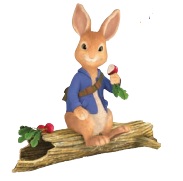
Figures of speech
1. Consonance: Repetition of similar consonant sounds in the neighbouring words.
(e.g.) T’is the prettiest little parlour that ever you did spy;
Pick out one more instance of consonance from the poem.

Down in the hill Sat the little doggie Nell There she dillied and she dallied all Day, Day, Day
2. Assonance: Repetition of similar vowel sounds in the neighbouring words
(e.g.) ‘T is the prettiest little parlour that ever you did spy;
Pick out one more instance from the poem.
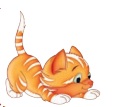
The cat ran after the alligator, past the pastry shop and the alleyway.
3. Anaphora: Repetition of a word or a phrase at the beginning of a sequence of sentences, paragraphs and lines.
(e.g.) How handsome are your gauzy wings, how brilliant are your eyes!
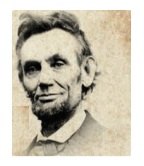
“that government of the people, by the people, for the people, shall not perish from the earth”
Identify the figures of speech.
”Your eyes are like the diamond bright, but mine are dull as lead!”
4. Alliteration: Repetition of consonant sounds at the beginning of words
Pick out the words in alliteration.
“Sweet creature!” said the Spider, “You’re witty and you’re wise,”
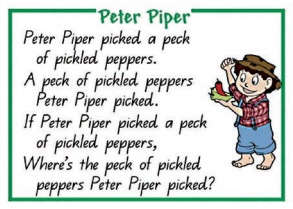
Repetition:
Line 5: ‘O,no,no!”
Line 30: ‘come hither, hither, pretty fly
Line 36: Thinking only …. purple hue
Line 37: Thinking only of …. foolish thing!
Alliteration: Repetition of initial consonant sounds.
Line 7: Soaring up so high [/s/ sound is repeated]
Line 19: You’re witty and you’re wise [/w/sound is repeated]
Consonance: Repetition of similar consonant sounds in neighbouring words.
Line 2: ‘Tis is the prettiest little parlour’ [/t/ is repeated]
Line 16: ‘I’m sure you’re very welcome; will you please to take a slice?” [/v/,/w/ is repeated]
Line 42: idle, silly, flattering talk [/l/sound is repeated]
Assonance: Repetition of similar vowel sounds:
Line 2:”Tis the prettiest little parlour [/i/ sound is repeated]
Line 9:”Curtains drawn around [/aw/sound is repeated]
Elision: Omission of a sound or syllable.
In words like ne’er, you’re, I’ve, you’ll etc the poet has omitted a sound or syllable to maintain the rhythm by dropping it wherever necessary.
Listening
D. Listen to the passage and fill in the blanks with appropriate answers.
Trust is one of the most important things anyone can have in a relationship because trust is what makes the foundation of a relationship. Without trust there is no relationship at all because everything you do or make of the relationship will be based on truth. Trust is a very rare thing to find and if you are able to give it in return, your life is so much better and more fulfilling for everyone involved. Trusting people can hurt sometimes because they betray you, but you learn from the situation and move on to the next adventure in your life. Just don’t let small bumps in the road throw you back to not trusting and being cold. Simply keep moving forward and you will have a wonderfully fulfilling life that will be filled with good people that care and are trustworthy.
(slightly adapted)
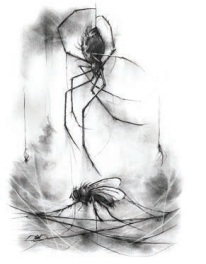
1. Without trust there is no relationship.
2. Trust is a very rare thing to find in life.
3. When people betray you learn from the situation.
4. Don’t let small bumps on the road throw you back.
5. If we keep moving forward you will have a wonderfully fulfilling life.
Speaking
E. The cunning spider was waiting for a chance to pull the fly into its web and it used all the possible ways to trap her. Have you ever been trapped by flattery to do something you did not want to do? Discuss in pairs and share your experience in the class.
Ajay and I are friends. Ajay is elder to me by a year of age. We used to go everywhere together. Ajay is cleverer than me. We both were studying in the same class. We occupied the same bench in the class. Many have called us twin though we don’t look alike nor brothers even. Ajay was in the habit of making fun of me often. But I never minded it. One day he told me about going to the river and bathe there. He knows swimming. But I don’t swim well. He flattered me that day saying that I could swim well and he promised me to make me swim well and he promised me to make me swim better. Even though I refused to swim, he compelled me to get into the river. I trusted him and jumped into the river. The river was deep and the water was flowing faster. He saw me struggling in the river shouting for help. Ajay took it as fun and did not come to my rescue. I thought that I would die. But to my surprise, a few people were watching me in this panic – stricken situation swam across the river and took me to the bank of the river. They advised Ajay not to be playful and betraying any one. He was ashamed for his senseless active. Later I was taken to my house. I forgave Ajay but never wanted to be his friend anymore.
“Only a friend in need is a friend indeed”.
Writing
F. The fly gives into flattery and becomes the spider’s prey. If you are asked to give a happy ending to the poem, how will you save the fly? Write in your own words.
The cunning spider tried to tempt the fly. Firstly the fly refused to accept the invitation to enter the spider’s parlour. Then the spider used flattery to seduce the fly. The spider started praising the fly. The fly believed the spiders words and gave into his praises. At last the spider jumped up and caught the fly fast. The fly released the danger and wanted to escape. While the spider was trying to make the fly its prey, there came a lizard. The spider was scared of it. So the spider went up leaving the fly half – dead. The fly became alert. It struggled hard to come out of the thin thread of half hazardly. The fly got some hope. In the last attempt, the fly fell down and flew away from there. The spiders hard effort with great flattery entered in vain. The spider had to wait for another chance to get any little creatures as its prey.
“Where there is a will, there is a way”














